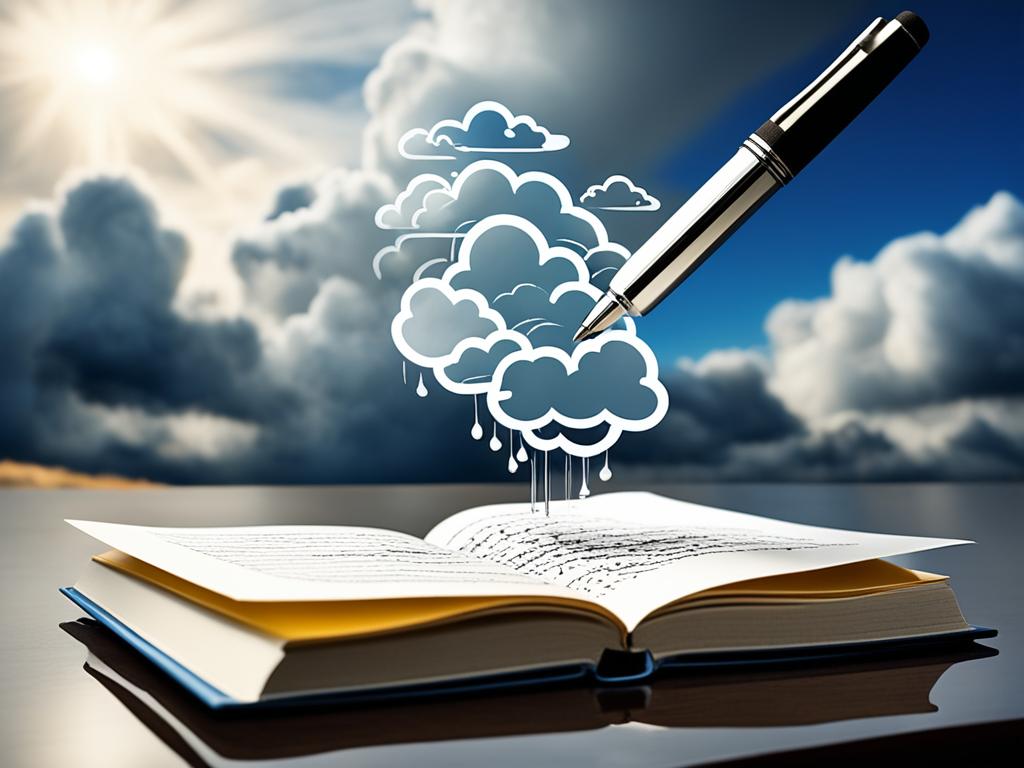Ever felt overwhelmed by your thoughts, struggling to make sense of them? Or to find clarity in life? You might have tried many ways to understand yourself better and grow, but nothing worked well.
Journaling is a simple yet powerful way to handle your thoughts and feelings. This leads to self-reflection, mindfulness, and growth.
It’s the answer you’ve been looking for. With journaling, you write down your thoughts and feelings. It helps you see your insights, deal with emotions, and set goals. This process brings your thoughts up for you to explore safely, bringing mental clarity.
This article will show you how journaling can change your life. Whether you’re just starting or you’ve journaled for years, you’ll find valuable tips here.
Ready to start your journey of self-discovery and reflection? Let’s explore the world of journaling. Together, we’ll discover how it leads to personal growth and mental clarity.
The Benefits of Journaling
Let’s talk about why journaling is so great. It’s more than just writing down what you think. Journaling lets you express yourself, deal with emotions, set goals, and manage stress.
Expressive Writing: Unlocking Emotions and Insights
Expressive writing helps you put your feelings into words. This turns journaling into a private place where you can be yourself. It lets you understand your emotions and thoughts better, bringing clarity.
Writing in a journal aids in seeing things from new angles. It helps you look at your actions and habits. This self-reflection boosts self-awareness and personal development.
Goal Setting: Turning Dreams into Reality
Journaling is great for setting and achieving goals. When you write your goals, it makes them more real. You can track progress, celebrate wins, and adjust your plans as needed.
It works for any kind of goal, from work to personal life. Journaling helps you stay on track and responsible. It guides you in taking steps towards your aspirations.
Stress Management: Finding Calm Through Writing
Writing is a great way to manage stress. It’s like talking to a friend. When you write about your worries and fears, you let go of tension, feeling less anxious.
Regular journaling can be very calming. It’s a mindful moment away from the daily rush. Writing in your journal can really relax and refresh you.
Expressing yourself, understanding emotions, setting goals, and managing stress are key benefits of journaling. Ready to see how journaling can change your life? Start writing today!

Techniques for Effective Journaling
Make your journaling better with these methods. They help you understand yourself and think clearly. By using prompts and reflection, you can explore your thoughts deeply.
Prompts for Self-Discovery
Here are some prompts that make you think:
“Describe a recent challenge you faced and how you overcame it. What did you learn from the experience?”
“Reflect on a significant event from your past that shaped who you are today. How did that experience impact your personal growth?”
“Write about a recurring pattern or behavior you would like to change. What steps can you take to break this cycle?”
Reflection Exercises for Mental Clarity
Reflecting can help clear your mind. Try these exercises:
- Gratitude Journal: Write down three things you’re thankful for every day. It helps you stay positive and in the now.
- Brain Dump: Let your thoughts flow onto paper without any rules. It can make your mind clearer.
- Goal Setting Worksheet: Set goals with deadlines and steps to achieve them. It keeps you motivated and on track.
Change these exercises to fit your life. You can journal in many ways. The important thing is to find what helps you learn about yourself.
Structured Journaling Formats
Structured formats can make journaling more consistent. Try these:
- Bullet Journal: Use lists and logs to track your thoughts and goals. It mixes planning with journaling, making entries neat.
- Five-Minute Journal: Start and end your day by writing a short entry on gratitude and positive thoughts. It keeps you hopeful and reflective.
- Stream of Consciousness: Write down your thoughts as they come, without worrying about mistakes. It keeps your ideas flowing and can reveal new things to you.
Test out different styles to see what you like best. Remember, journaling is personal. What helps one person might not help another. So, pick what feels right for you.

| Techniques | Benefits |
|---|---|
| Prompts for Self-Discovery | Uncover hidden aspects of yourself Gain a deeper understanding of emotions |
| Reflection Exercises for Mental Clarity | Find focus and organize thoughts Cultivate a positive mindset |
| Structured Journaling Formats | Introduce consistency in practice Efficiently structure entries |
Cultivating Mindfulness Through Journaling
Journaling is a great way to reflect and grow. It helps us stay mindful. This means paying full attention to now, making us more aware in our daily life.
Writing lets us focus, as we put our thoughts down. It reminds us to observe our thoughts without judgment. This way, we get to know ourselves better.
Start each session with mindful breathing. Feel the writing device in your hand. This keeps you grounded in the now.
“Mindfulness is the key to unlocking the full potential of journaling. By being fully present and attuned to the process, you create a space for self-discovery and growth.”
Adding gratitude to your journaling makes it more mindful. Write about what you’re thankful for. This brings more joy to your life.
Also, set an intention for each session. It could be to understand a topic better or be open to new ideas. This guides your practice and adds meaning.
Bringing Mindfulness to Daily Life
Journal insights can spread into daily life. With journaling, you learn to be more present all day.
Try to be as mindful in your daily activities as when you journal. Pay attention to what you see, hear, and do. It makes your life better and more connected.
The journaling-mindfulness connection: A Natural Partnership
Journaling and mindfulness work well together. Writing lets us reflect, while being mindful keeps us in the moment. This makes insights from writing even more impactful.
By doing both, you start a journey of discovery and mindfulness. Use journaling to stay present and enjoy each moment fully.

Conclusion
Journaling is a powerful tool for self-reflection and growth. It helps you gain mental clarity and understand your thoughts. By writing down your feelings and staying mindful, you can learn a lot about yourself.
It’s a safe place to think about your emotions, dreams, and hopes. Journaling lets you look back on the past and learn from it. This helps you connect your thoughts to your actions, making you more aware of yourself.
Writing regularly can help you find who you really are and what you want. It’s a journey to better understand your values and see where you can improve. Keeping a journal helps you see how far you’ve come and gives you reasons to celebrate your progress.




